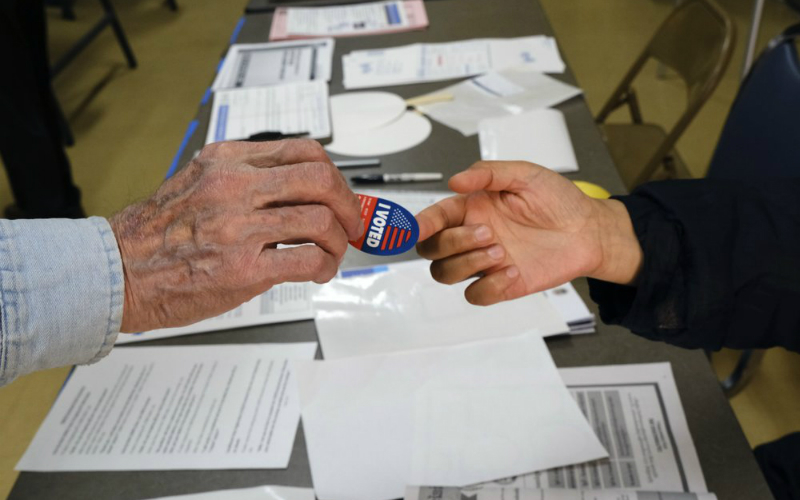American voters sent a message on Election Day but, as resounding as it seems, the gap could have been wider.
Young adults and Hispanics were important in those numbers, but so were Christians, a powerful group that has been overlooked in the conversation, polling expert George Barna wrote in his post-election analysis.
According to Barna, director of the Cultural Research Center at Arizona Christian University, voters who identified as Christian represented 72% of the turnout. Trump picked up 56% of their vote.

“The one segment that has gotten virtually no attention from the media are Christians,” Barna wrote. “Their support for the re-elected Republican made the difference in the race.”
But the voting research also revealed that while Christians represented 72% of those who voted, many Christians simply chose not to vote.
Adam Rasmussen, an associate professor at Arizona Christian, believes more Christians would have voted if more pastors had engaged them from the pulpit. Not all of them would have voted for Trump, but it’s clear from the research that most did.
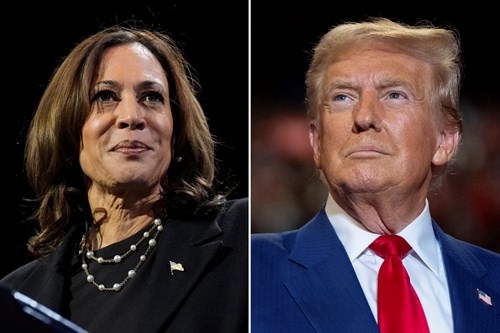 “We found that if perhaps there was a last-minute push of pastors, family members and churches that could have encouraged 32 million Christians to come out and vote, that might have pushed another 5 million to the polls,” Rasmussen said on Washington Watch Monday.
“We found that if perhaps there was a last-minute push of pastors, family members and churches that could have encouraged 32 million Christians to come out and vote, that might have pushed another 5 million to the polls,” Rasmussen said on Washington Watch Monday.
Rasmussen told show host Tony Perkins that pastors don't need to endorse candidates but they could speak more to responsibilities of Christian citizenship.
“We need to be more engaged in those things,” Rasmussen said.
Christians mirror public 'distaste' for candidates
Research by Barna, done before the election, found that as many as 41 million Christians were planning to sit out the election.
“A primary reason for that diminished interest is the public’s distaste for both major-party candidates,” Barna wrote in a news release in October.
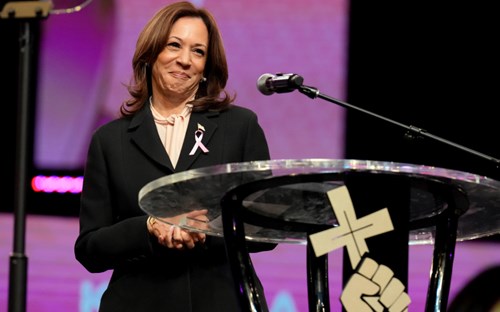 “Other factors include public dissatisfaction with the quality of government and the widespread expectation that the results of the election will be manipulated by illegal, behind-the-scenes activities and voting by illegal immigrants,” he continued.
“Other factors include public dissatisfaction with the quality of government and the widespread expectation that the results of the election will be manipulated by illegal, behind-the-scenes activities and voting by illegal immigrants,” he continued.
A grassroots door-knocking campaign by the Faith and Freedom Coalition may have contributed to lowering that number.
Still, many Christian voters simply stayed home.
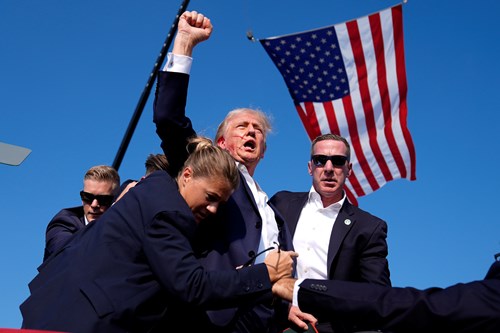 “Sadly, 20% of them said, ‘I was planning on it, but I just didn't get around to it.’ So, there were several reasons, but I mean, that was one of the most, and what a lame excuse that was. ‘I was going to do it, but I didn't get to it. I forgot’ or something like that,” Rasmussen said.
“Sadly, 20% of them said, ‘I was planning on it, but I just didn't get around to it.’ So, there were several reasons, but I mean, that was one of the most, and what a lame excuse that was. ‘I was going to do it, but I didn't get to it. I forgot’ or something like that,” Rasmussen said.
In post-election research, many of the reasons for not voting mirrored the reasons offered in pre-election research.
“Other reasons were, ‘I thought it might be rigged. I didn't think my vote would count,’ or perhaps, ‘I didn't like one of the candidates. It wasn't pleasant for me to vote,’ or ‘Politics is not important to me,’” Rasmussen explained.
Christian voters cited economy, border
Sometimes Christians are called to do hard things.
“Jesus Christ needs to be Lord of all of my life, not just on Sunday mornings,” Rasmussen said, “but on Mondays, too, and not just the parts of life that are easy for me.”
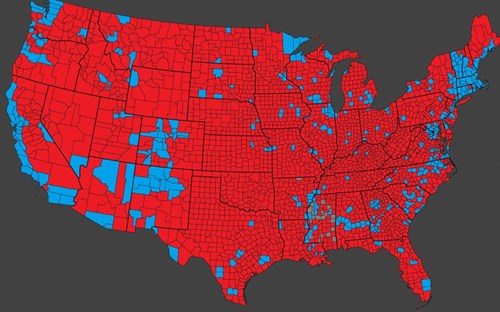 In fact, the hard times offer even more reason for Christians to lean on the Lord and engage, Rasmussen said.
In fact, the hard times offer even more reason for Christians to lean on the Lord and engage, Rasmussen said.
Even with the numbers who sat out the election, Christians outnumbered voters of other five-to-two, Rasmussen said.
The 72% of Christians who did get out on election day voted their values. Raising families, the economy and the border were important issues, Rasmussen said.
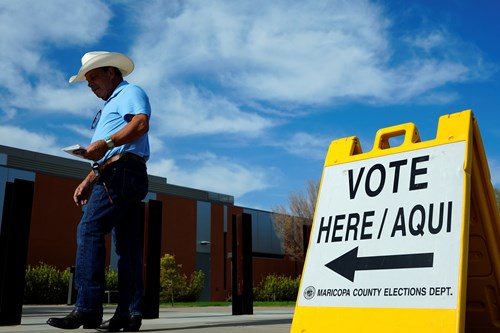 Because many voters were so closely aligned with one party, Christians who favored God’s creation of only two genders, one assigned at birth, and other family values, gave Trump a 17-milliion vote advantage, a cushion.
Because many voters were so closely aligned with one party, Christians who favored God’s creation of only two genders, one assigned at birth, and other family values, gave Trump a 17-milliion vote advantage, a cushion.
“Because the margin between the two of them was less than that, it was insurmountable, and that is something that we really should explore,” Rasmussen said.



